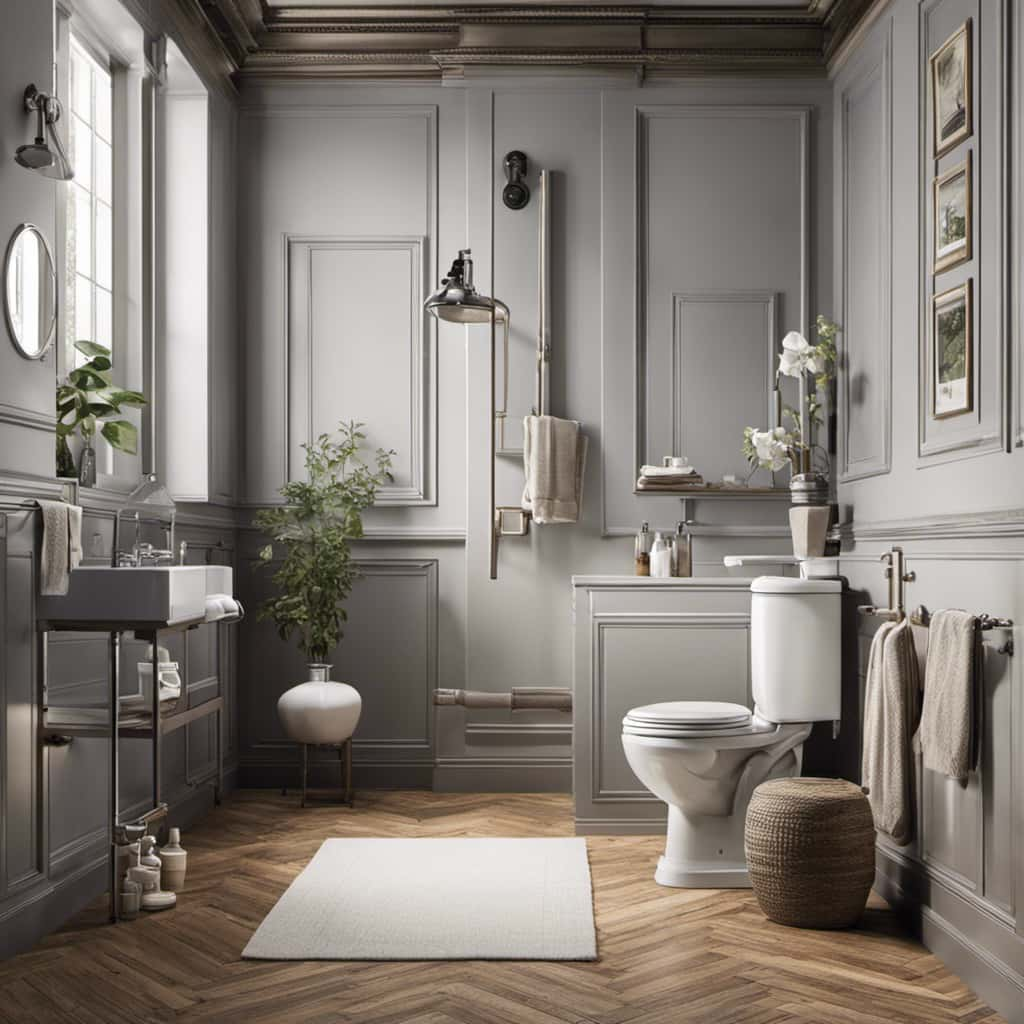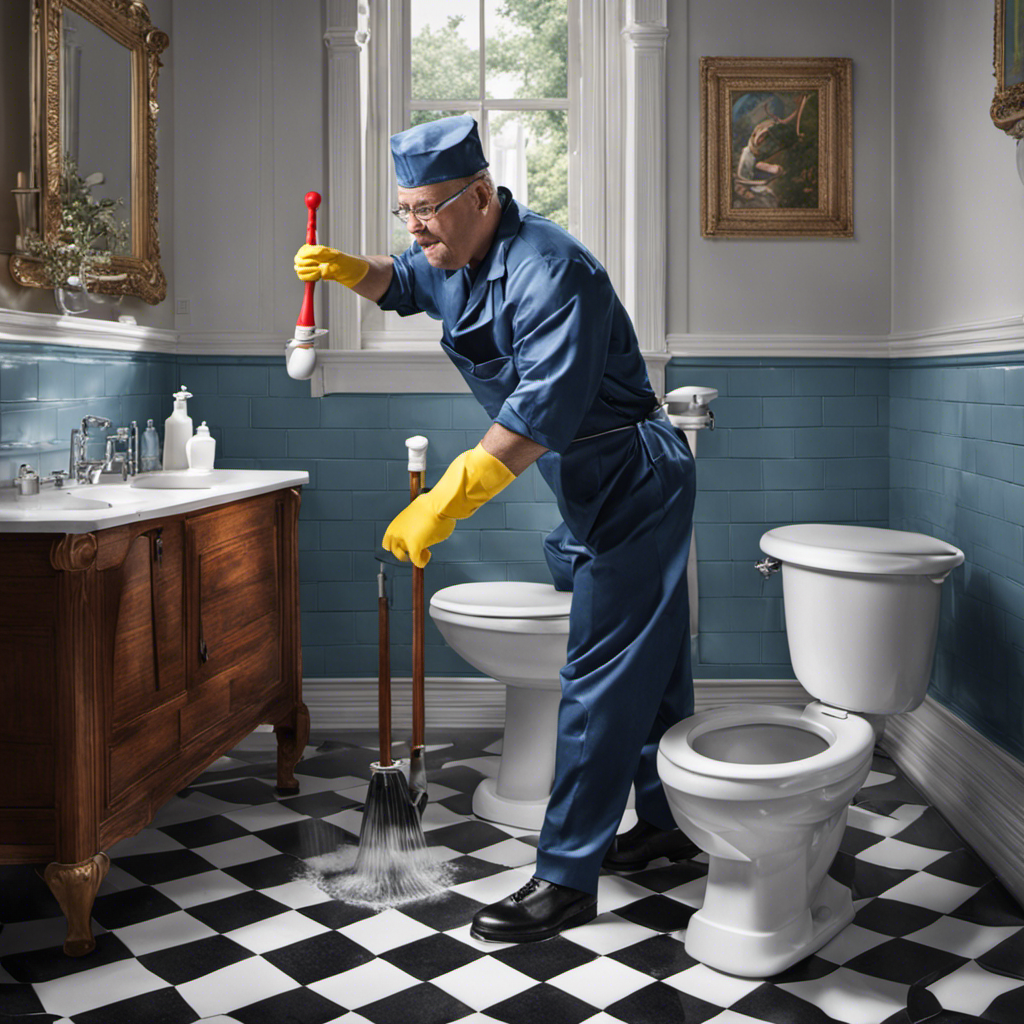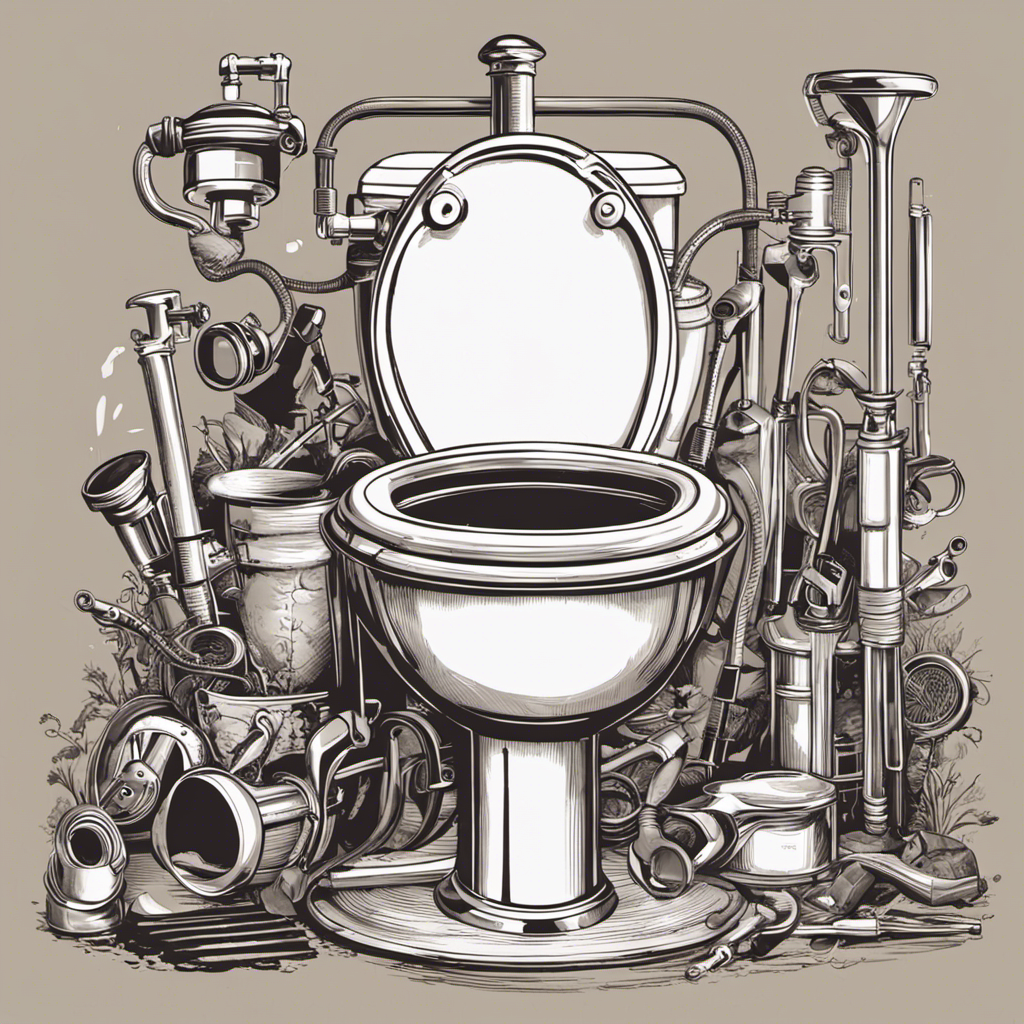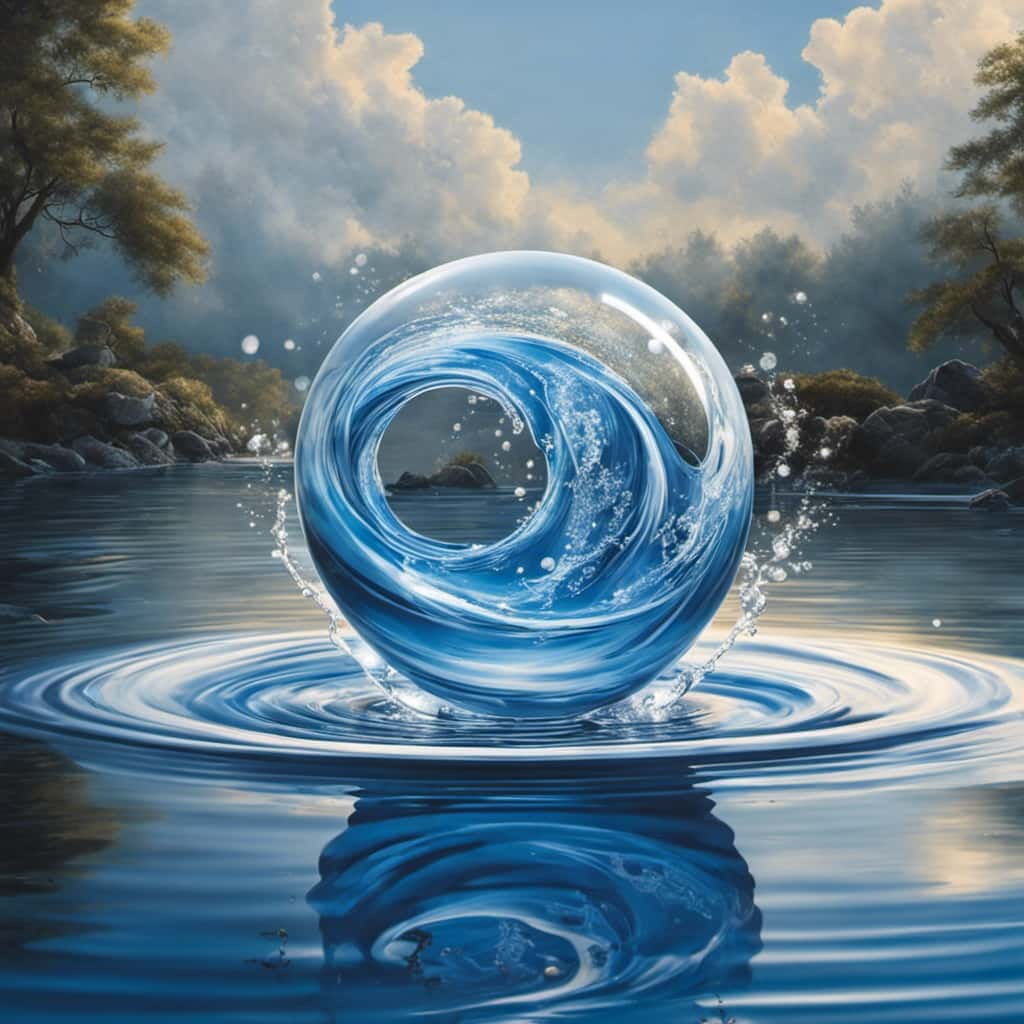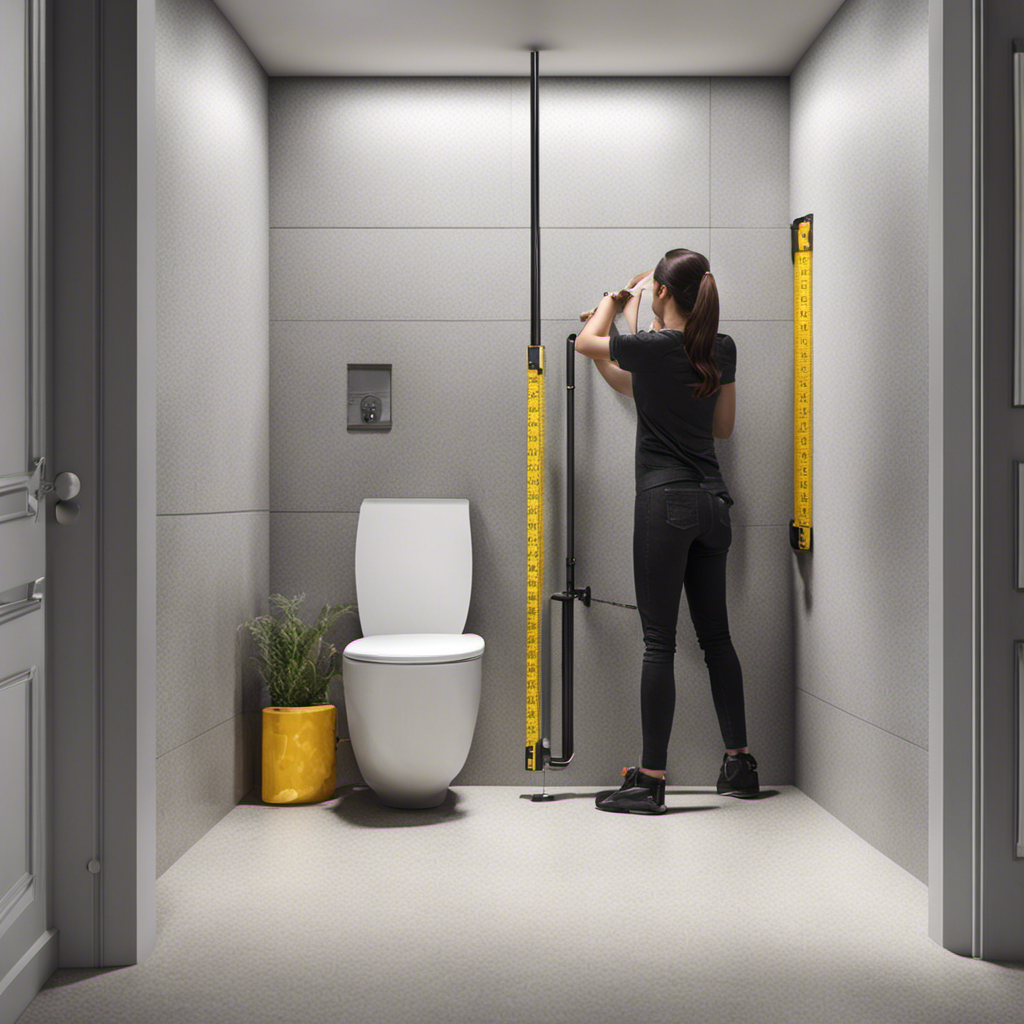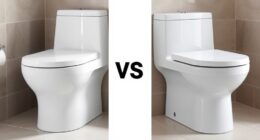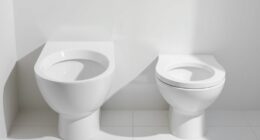It’s common knowledge that toilets seem like wonderous devices capable of making items vanish simply by triggering a lever. However, the reality is that they don’t possess any magical qualities.
In fact, there are only a few things that can be safely flushed down a toilet without causing a plumbing disaster.
In this article, we’ll explore the ins and outs of what can and cannot go down the toilet. So buckle up, because we’re about to become masters of toilet flushing mastery.
Key Takeaways
- Toilet paper made from recycled materials or sustainable alternatives like bamboo or hemp is recommended to reduce environmental impact.
- Flushing only human waste and urine helps maintain smooth water flow and prevents clogging in the sewage system.
- Not all wipes labeled as ‘flushable’ are truly safe for flushing, so it’s important to read the packaging carefully and choose wipes designed to break down quickly in water. It is recommended to dispose of flushable wipes in the trash instead of flushing them.
- Certain organic waste items such as toilet paper and human waste are safe to flush, while food waste should be composted and organic materials should be disposed of through appropriate waste management systems.
Biodegradable and Toilet Paper
We can easily flush biodegradable materials such as toilet paper down the toilet. This is because toilet paper is designed to break down quickly and easily in water, making it safe for the plumbing system.
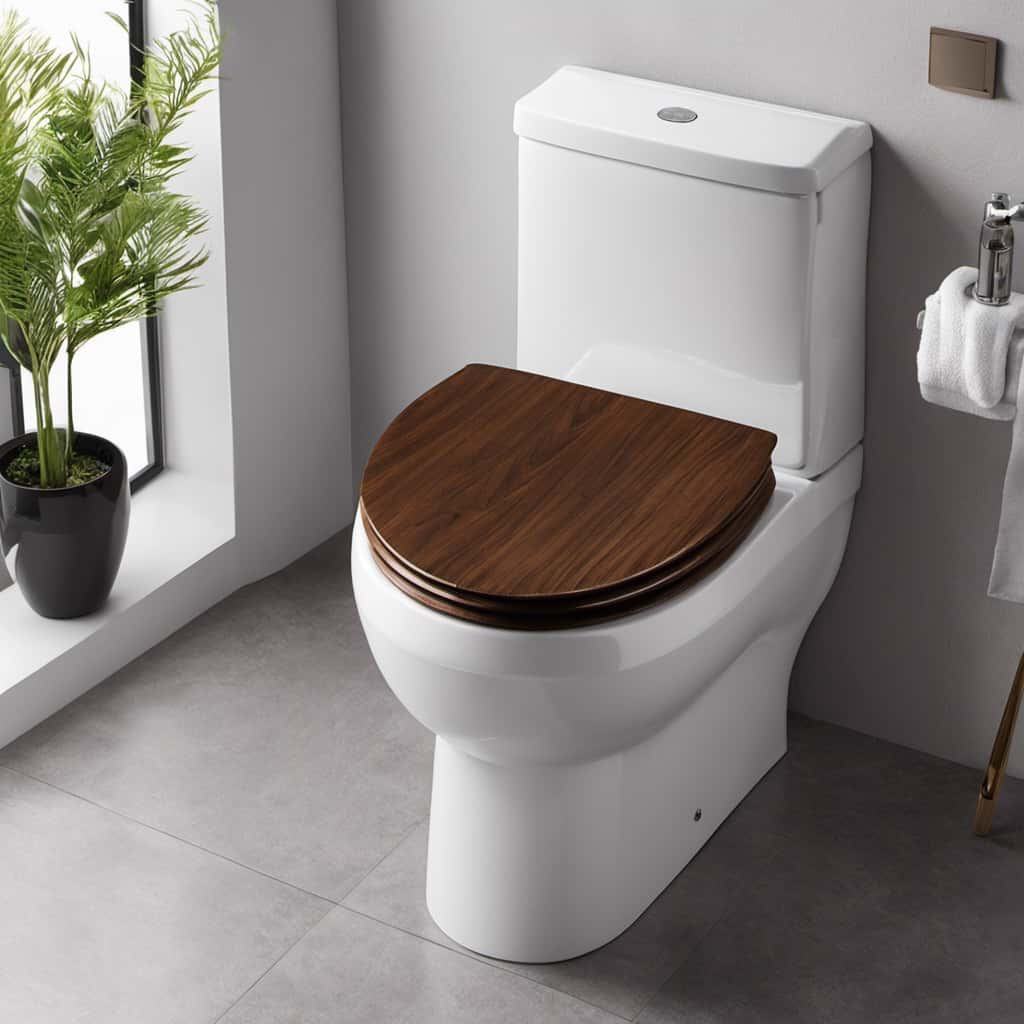
However, it’s important to note that not all types of toilet paper are created equal. Some brands may use chemicals or additives that can have a negative environmental impact. To ensure sustainability, it’s recommended to choose toilet paper made from recycled materials or from sustainable alternatives such as bamboo or hemp. These options not only reduce the strain on natural resources but also minimize the environmental impact associated with the production and disposal of traditional toilet paper.
Moving on to the next section, let’s discuss the proper disposal of human waste and urine.
Human Waste and Urine
When it comes to flushing down a toilet, we can safely dispose of human waste and urine. Here are four reasons why proper toilet etiquette is crucial for both personal hygiene and sewage treatment:
- Preventing blockages: Flushing only human waste and urine helps maintain the smooth flow of water and prevents clogging in the sewage system.
- Protecting the environment: By adhering to toilet etiquette, we minimize the introduction of harmful substances into the water supply, reducing pollution and protecting aquatic ecosystems.
- Promoting public health: Proper disposal of human waste and urine prevents the spread of diseases and ensures a safe and hygienic environment for everyone.
- Supporting sewage treatment: When we flush only what’s intended, sewage treatment plants can effectively treat wastewater and remove contaminants before releasing it back into the environment.
Water-Soluble Hygiene Products
Water-soluble hygiene products can be safely disposed of by flushing them down a toilet. However, it’s important to note that not all wipes labeled as ‘flushable’ are truly safe for flushing. While these wipes may disintegrate in water, they can still cause clogs in pipes and contribute to sewer blockages. Therefore, it’s crucial to read the packaging carefully and look for wipes that are specifically designed to break down quickly in water.
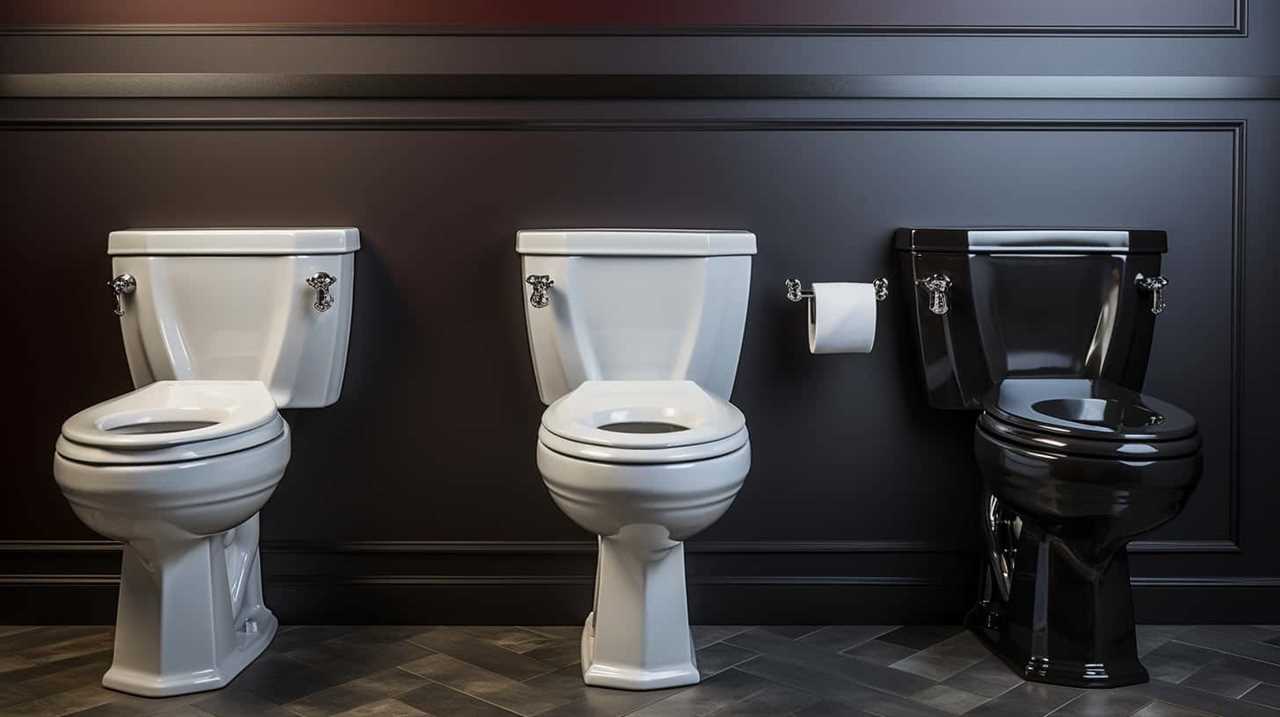
Additionally, it’s essential to consider the environmental impact of flushing these wipes. Even if they’re labeled as flushable, they can still harm the environment by contributing to sewer overflows and polluting waterways. Therefore, it’s recommended to dispose of flushable wipes in the trash instead of flushing them.
Now, let’s move on to discussing certain types of organic waste.
Certain Types of Organic Waste
To properly dispose of certain types of organic waste, it’s important to know what can and can’t be flushed down a toilet. When it comes to organic waste, some items can be safely flushed, while others should never go down the drain. Here is a list of what you can and can’t flush:
- Can flush:
- Toilet paper: It easily breaks down and is designed to dissolve in water.
- Human waste: This is the main purpose of a toilet.
- Can’t flush:
- Food waste: Proper disposal of food waste involves composting benefits, not flushing it down the toilet.
- Organic materials: Leave these for composting or disposal through appropriate waste management systems.
Nothing Else!
For the sake of maintaining optimal plumbing functionality and preserving the environment, we must be mindful that nothing else should be flushed down the toilet.
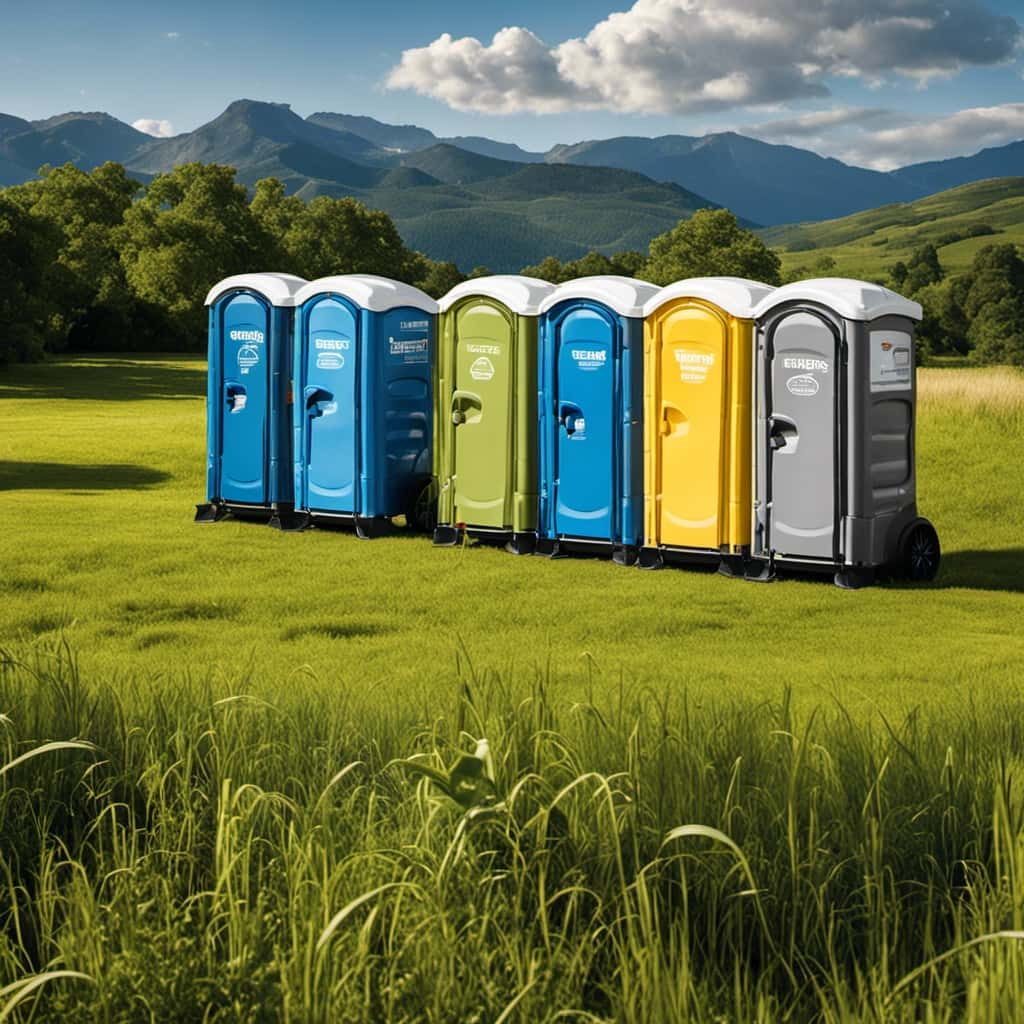
While it may be tempting to dispose of various items in this convenient manner, doing so can lead to serious consequences.
Toilet bowl cleaners, for example, contain chemicals that can harm the pipes and disrupt the wastewater treatment process. These cleaners are designed to be used in the toilet bowl, not flushed down the drain.
Similarly, medication disposal should never be done by flushing them down the toilet. This can contaminate water sources and harm aquatic life. Instead, it’s important to follow proper disposal methods, such as taking them to a designated drop-off location or utilizing drug take-back programs.
Frequently Asked Questions
Can I Flush Baby Wipes Down the Toilet?
Flushing baby wipes down the toilet can cause plumbing issues and harm the environment. To avoid these problems, consider using alternatives such as disposing of baby wipes in a trash bin.

Are Dental Floss and Cotton Swabs Safe to Flush?
Flushing dental floss and cotton swabs can have a negative environmental impact. These items can clog pipes and contribute to sewage backups. Instead, dispose of them in the trash to minimize potential damage.
Can I Flush Cat Litter Down the Toilet?
Flushing cat litter down the toilet is not recommended. It can cause clogs and damage to plumbing systems. It’s important to stick to toilet paper alternatives that are biodegradable and avoid flushing non-biodegradable items.
Is It Okay to Flush Expired Medication Down the Toilet?
Flushing expired medication down the toilet is not safe. It can be harmful to the environment and can contaminate water sources. Proper disposal methods, such as take-back programs or medication drop-off sites, should be used instead.
Can I Flush Food Waste Down the Toilet?
Flushing food waste down the toilet can lead to potential plumbing issues. It is important to only flush biodegradable items to avoid clogs and backups. Non-biodegradable items should be disposed of properly.
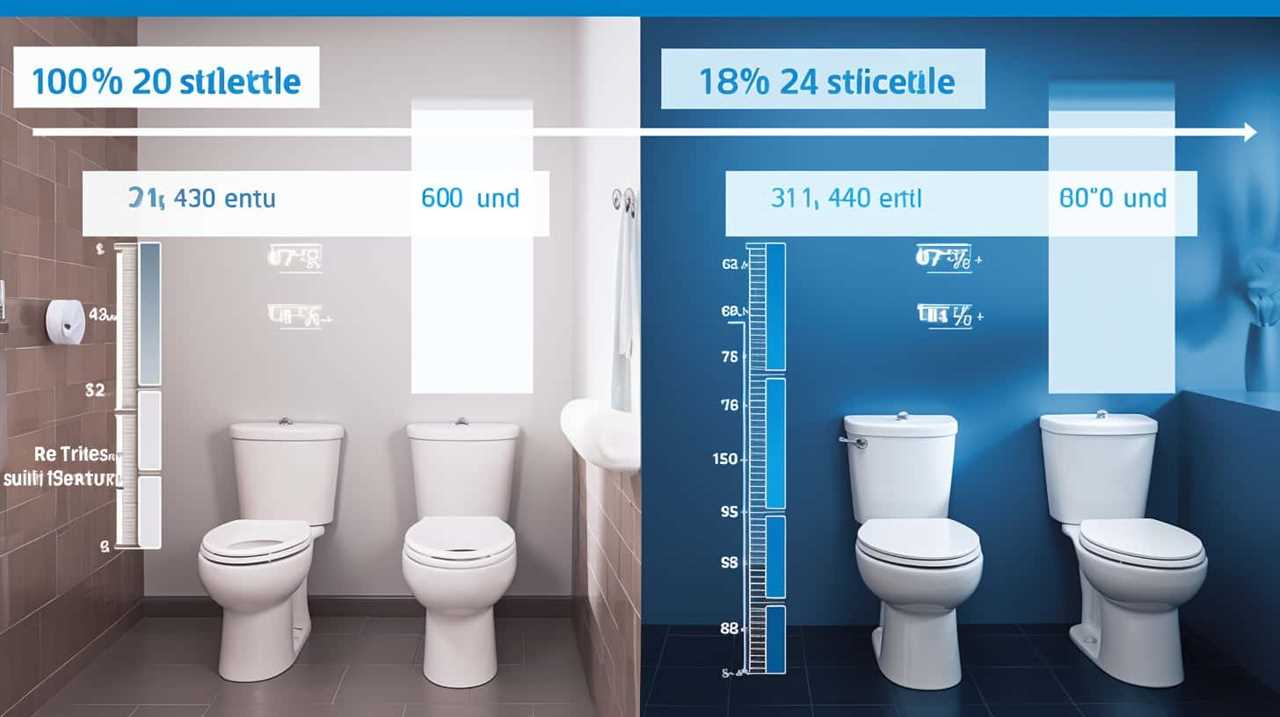
Conclusion
In conclusion, it’s crucial to remember that toilets are designed to handle only certain types of waste. Flushing biodegradable items, toilet paper, human waste, urine, and water-soluble hygiene products is acceptable.
However, anything else can cause blockages, clogs, and potential damage to the plumbing system.
Like a symphony conductor guiding each note, we must be mindful of what we flush and ensure we maintain the harmony of our toilets.
